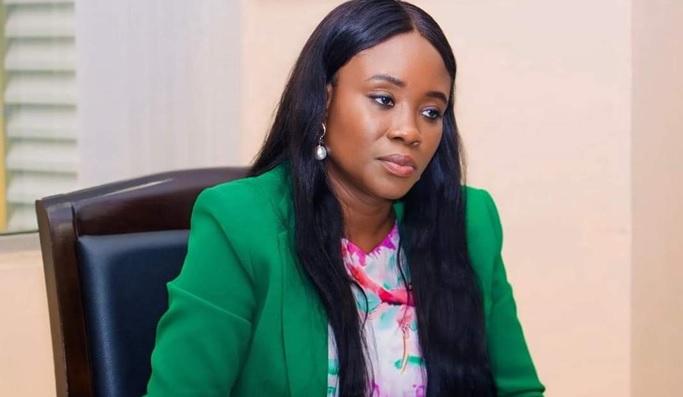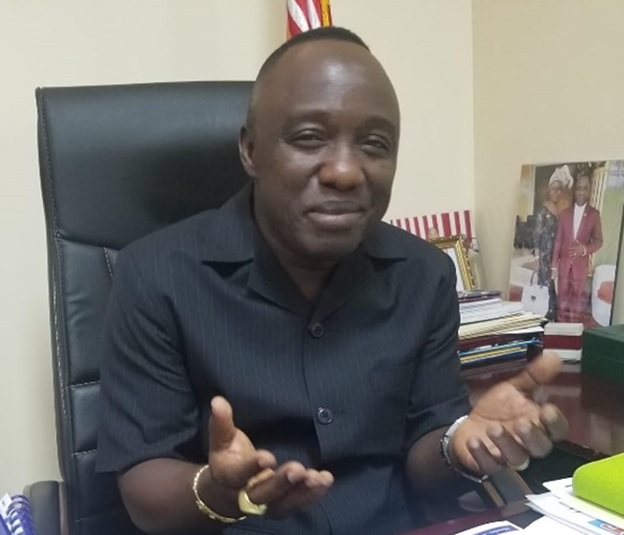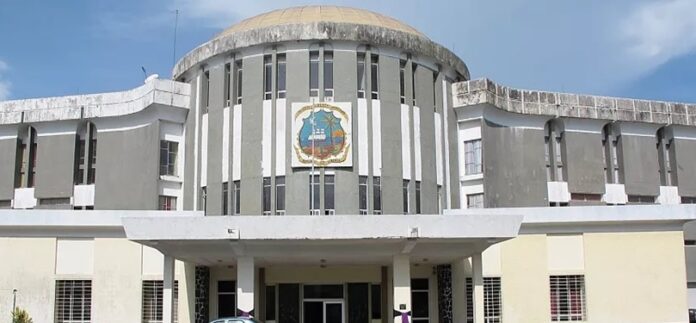MONROVIA – At the Ministry of Information, Culture Affairs, and Tourism’s regular press briefing on Thursday, Liberia Anti-Corruption Commission (LACC) Chairperson, Cllr. Alexandria Zoe, emphasized the legal obligation for public officials to declare their assets within 30 days of assuming office. She highlighted the crucial role of transparency in combating corruption and fostering national growth and development.
Cllr. Zoe pointed out that since the LACC’s mandate on asset declaration, 200 public officials have complied, a move she described as commendable. However, she stressed that the fight against corruption faces significant challenges, including logistical constraints, insufficient funding, and a lack of legal practitioners within the commission. The LACC is actively working on strategies to address these issues.
A critical part of the LACC’s strategy, as outlined by Cllr. Zoe, involves the establishment of additional courts dedicated to corruption cases. She called on the Liberian government to establish Criminal Court ‘F’, which would specifically handle corruption-related cases. Currently, the only court in Liberia handling such cases is Criminal Court ‘C’, which is overwhelmed with a backlog of other criminal cases. This congestion hampers the timely prosecution of corruption cases.
“Currently, the only court in the country that hears corruption cases is Criminal Court ‘C’, and it is already overwhelmed with other criminal cases. This situation impedes our ability to get LACC cases on the docket,” Zoe explained. The establishment of Criminal Court ‘F’ would enable the LACC to prosecute corruption cases more effectively and efficiently, contributing significantly to the fight against corruption.
Cllr. Zoe also highlighted ongoing engagements with legislators and the executive branch to establish this specialized court. She noted that relying on a single court and a limited number of legal practitioners poses significant risks to the anti-corruption efforts, especially if those resources are compromised.
In her remarks, Cllr. Zoe lauded President Joseph Nyuma Boakai for signing the bill to establish the War and Economic Crimes Court, which will also hear corruption-related cases. This development, she noted, is a positive step towards strengthening Liberia’s judicial capacity to address economic crimes and corruption comprehensively.
However, the issue of asset declaration remains contentious. It was recalled that on Tuesday, June 4, 2024, Presidential Press Secretary Kula Fofana defended government officials who have yet to declare their assets. Fofana argued that many officials are new to their roles and are still learning the asset declaration process. This defense was met with criticism from the Center for Transparency and Accountability in Liberia (CENTAL), which dismissed the excuse as flimsy.
Despite these defenses, Cllr. Zoe maintained that all public officials must comply with the asset declaration requirements to promote transparency and accountability. The LACC’s push for additional judicial resources and stringent enforcement of asset declaration laws underscores its commitment to eradicating corruption and enhancing governance in Liberia.
The importance of additional courts cannot be overstated. With only one court handling a myriad of criminal cases, including corruption, the backlog can severely delay justice. Criminal Court ‘F’ would alleviate this pressure, allowing for more focused and expedited handling of corruption cases. This, in turn, would serve as a deterrent to potential offenders and reinforce the rule of law.
Moreover, the establishment of a specialized court would signal a strong commitment by the Liberian government to combat corruption at all levels. It would demonstrate that the country is serious about holding public officials accountable and ensuring that corruption does not go unchecked. This could also improve Liberia’s international standing and potentially attract more foreign investment by showcasing a transparent and accountable governance system.
The logistical and funding challenges faced by the LACC are significant hurdles. Without adequate resources, the commission’s ability to investigate and prosecute corruption cases is severely hampered. The government must prioritize funding and support for the LACC to ensure it can carry out its mandate effectively. This includes not only financial resources but also the recruitment of skilled legal practitioners who can handle the complexities of corruption cases.
Public support for the LACC’s efforts is crucial. Citizens need to be aware of the importance of asset declaration and the role it plays in promoting transparency. Public awareness campaigns and education initiatives can help build a culture of accountability and integrity in public office. By fostering a societal norm that values honesty and transparency, the fight against corruption can gain more traction.
The establishment of Criminal Court ‘F’ and the enforcement of asset declaration laws are pivotal to the LACC’s mission. Cllr. Zoe’s call for these measures reflects a broader strategy to create a more robust and accountable public sector, ultimately contributing to the nation’s development and the well-being of its citizens. The government, legislators, and the public must all work together to support these initiatives and ensure that corruption is effectively tackled in Liberia.







